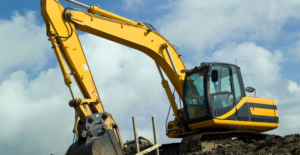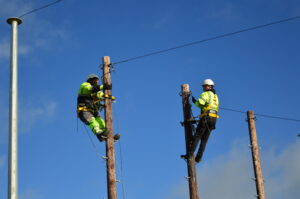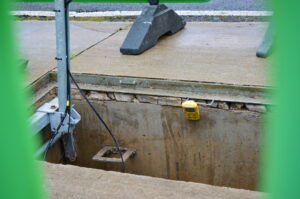
What is it?
Women in Construction Week highlights the growing number of women working within the construction sector and acknowledges the great work that women do within an industry that has been dominated by men for decades. This week creates opportunities to celebrate all construction sector businesses who welcome and present opportunities for women to advance and build their career within the many diverse organisations that make up the sector.
Did You Know….?
Women make up around 14% of construction industry professionals and this number can only be set to rise with more and more women choosing construction jobs.
According to the website ‘Go Construct’, more than one-third (37%) of new entrants into the U.K. construction industry from higher education are women, and 14% of construction sector professionals are female.
A report published by Randstad in 2020 showed that, of 4,200 women working in construction surveyed, nearly three-quarters (72%) had experienced some form of gender discrimination in the workplace in 2019.
(The Access Group)
Not surprisingly, “99% of workers on a building site are male,” whilst the number of women joining the construction sector continues to grow, women are still heavily underrepresented in comparison to their male counterparts.
https://www.theaccessgroup.com/en-gb/blog/con-why-is-there-a-lack-of-women-in-construction/
So what can we do about it?
Tips to Increase Female Representation Within the Construction Sector
1. Include Women in Your Advertising Materials
Whilst women are naturally allowed to apply for jobs in construction, job advertisements, images and video content produced by recruiting companies often features men, and subtle nuances like the language and tone of voice may imply that the job specification is aimed at men. This can be off-putting for many women who have an interest in applying. Ensure that your content is inclusive and welcoming to women and all other underrepresented groups. Any advertising, whether it be in schools, online or through companies should represent diversity in the industry, such as gender, age, ethnicity, and disability.
3. Treat employees equally
Many construction companies struggle to make sure their staff are treated equally, regardless of gender. It Is important to provide both male and female toileting facilities on site, protective equipment to fit all sizes and lastly ensure that everyone has the working conditions they need to do their job correctly.
3. Raising awareness and educating young people
It is important to make sure women and girls are aware of the opportunities available to them from an early age. Although employers and site managers have an important role to play, there is a lot that educators can do to make women aware of construction sector roles as well. One way of doing this could be by sending female construction workers into schools and colleges to give talks about the industry and how people can get involved. This will raise awareness to the fact that the construction industry is for everyone and not just for men.
4. Bridge the gender pay gap
The gender pay gap is an ongoing issue in most sectors, but the construction industry is in a considerably worse position, “with a 41% pay gap between male and female construction and building trade supervisors.” (Office for National Statistics)
Where Can Women in the Construction Sector Find Support?
For those women who are currently working in construction, there are organisations to support and help them.
Women Into Construction offers advice and guidance, while events like the Women In Construction Summit provide a chance for networking and career development.” The Access Group
‘CITB NI Women in Construction Ni’ is a group in Northern Ireland that women can join which organises a range of events and seminars to allow for learning, career development and networking.
How do I get involved?
If you’re a female, entering the construction industry doesn’t have to be difficult. Entry-level jobs aren’t hard to come by and you shouldn’t feel like the manual labour jobs are only for men. If the role sounds like a good fit for you, apply.
For More Great Posts Like This Check Out Our Latest News Sections:
www.industrytrainingservices.com/latestnews




